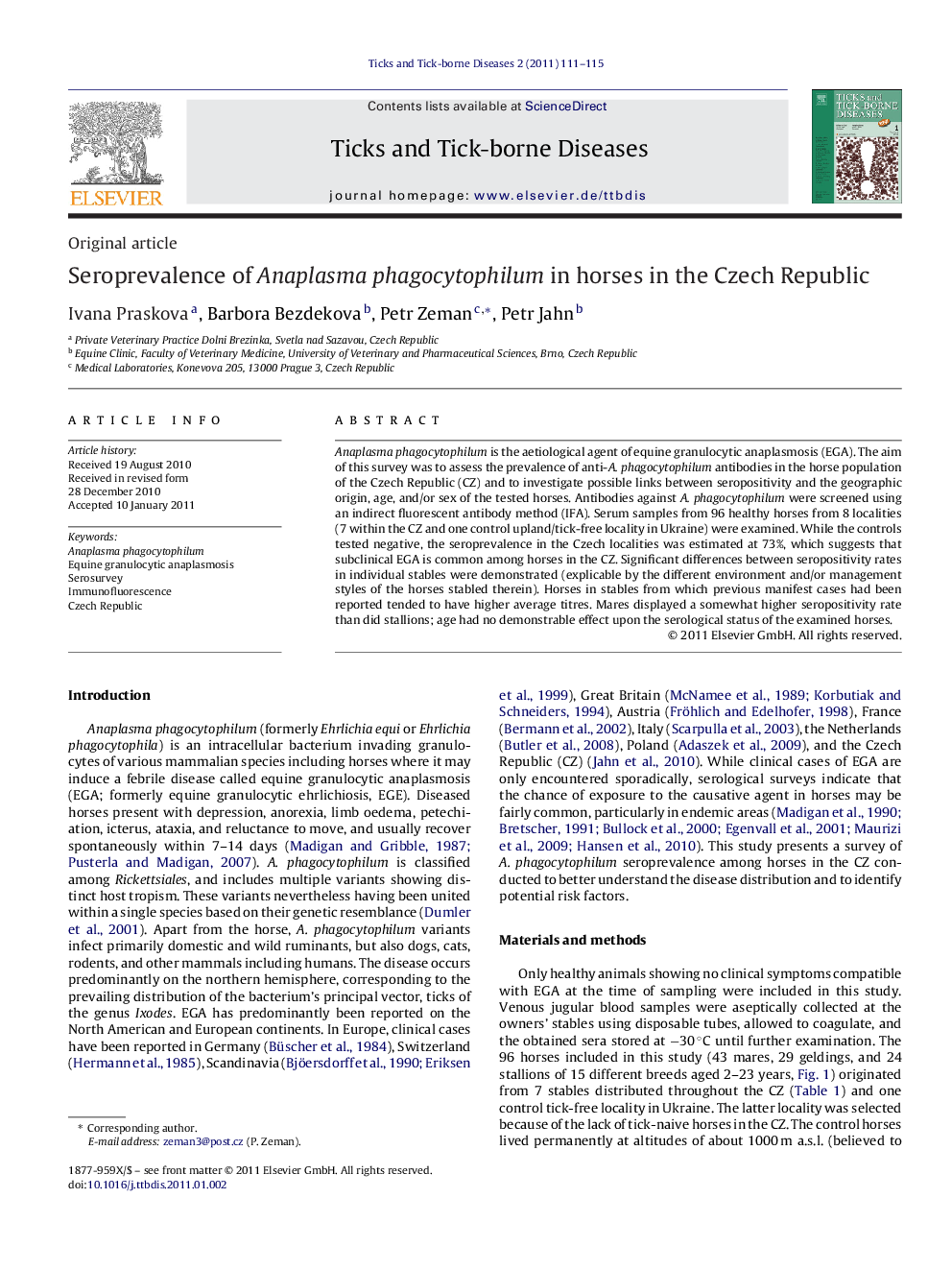| Article ID | Journal | Published Year | Pages | File Type |
|---|---|---|---|---|
| 2474069 | Ticks and Tick-borne Diseases | 2011 | 5 Pages |
Anaplasma phagocytophilum is the aetiological agent of equine granulocytic anaplasmosis (EGA). The aim of this survey was to assess the prevalence of anti-A. phagocytophilum antibodies in the horse population of the Czech Republic (CZ) and to investigate possible links between seropositivity and the geographic origin, age, and/or sex of the tested horses. Antibodies against A. phagocytophilum were screened using an indirect fluorescent antibody method (IFA). Serum samples from 96 healthy horses from 8 localities (7 within the CZ and one control upland/tick-free locality in Ukraine) were examined. While the controls tested negative, the seroprevalence in the Czech localities was estimated at 73%, which suggests that subclinical EGA is common among horses in the CZ. Significant differences between seropositivity rates in individual stables were demonstrated (explicable by the different environment and/or management styles of the horses stabled therein). Horses in stables from which previous manifest cases had been reported tended to have higher average titres. Mares displayed a somewhat higher seropositivity rate than did stallions; age had no demonstrable effect upon the serological status of the examined horses.
